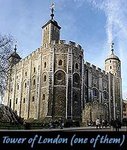 Dear Stan,
Dear Stan,Here is an account by Peter Hitchens of his train journey from Washington DC to Chicago. How many Americans make such a journey nowadays? But Peter is a big train fan. Not the least of his complaints about modern British governments is the massive cuts in our railway network since the 1950s. When the French President Sarkozy recently came to London, Peter wondered why he came by air when there is a superb high-speed rail link between the centres of London and Paris, which are much closer together than Chicago and Washington. When I flew to Paris in 2006, it took ages to get the Metro from Charles de Gaulle Airport into the Gare du Nord; and that is the station where the Eurostar train from London arrives.
Bill
==========================================================================
America, the UK and Misleading Myths
Peter Hitchens
As some of you may have noticed, I spent last week in the USA. I managed to do a lot of traveling by train, as the USA's passenger rail system is a lot more comprehensive and more pleasant to use than most people (including Americans) think. The journey between Washington DC and Chicago brings to mind John Keegan's remark that, while England is a garden, North America is still largely a wilderness.

You'd never get the opportunity to see this contrast if you took either the plane (which ignores the country in between) or the Interstate motorways, which sweep past and round physical features, and are bordered with regular trees, motels and restaurants. But the train plunges you into wildness, just a few miles out of the capital. After Harper's Ferry, a melodramatic and romantic place, overhung by tall cliffs, which entirely lives up to its legendary name, the tracks wind for hours through deep forest, along the upper reaches of the Potomac , wholly wild and barely inhabited, probably unaltered for thousands of years.
This is not the distant west or even the overpowering space of the prairies. It is just over the horizon from the great belt of intense human settlement that runs all the way down from Boston to Richmond, and on the way to another glowing concentration of human power and energy, the chain of industrial cities that lie along the southern edge of the Great Lakes.
Even once the mountains are over, the sense of space is always there. And I think this is another of the main differences between our two cultures, the immense amount of room in which Americans find it easier to get along with each other by staying a safe distance from each other. It was also astonishing to pass through the gigantic steelworks that still fringe the southern edge of Lake Michigan, though I think they're much diminished from how they were 20 years back. . I wonder if they'll be there at all in 20 years, given the pace of globalisation, but they give you some idea of the colossal industrial and economic power which was unleashed in the USA by the Second World War - and they reminded me of what Sheffield and Rotherham used to look like when we still had a serious steel industry.
It doesn't matter how many times I'm told that it doesn't matter that we know longer make very much ourselves. I can't help thinking that it does matter, and also that a society which doesn't have jobs for men to do, such as steelmaking, coalmining and shipbuilding, has lost something very important. We've mechanized the land, and exported most of the hard manual work to the East. Is it, can it be right for us to live at such a distance from the making of real wealth, and the growing of real food?
As for the debate in Grand Rapids which was one of the reasons for my journey, I still haven't seen it (my reflections on the event were published in the MoS on Sunday and can still be found on the website). If you take part in such a thing, you get a very misleading impression of it. But it was clear that there is ( as I knew there would be) a great gulf between American and British ways of expressing things, and between the two wholly different experiences of the early 21st century. I am told that most in the audience simply couldn't believe my description of the violence and disorder in British cities nowadays, much as I suspect many British people would be amazed by the order and safety of most of America. Both nations subsist on myths about each other which are almost completely misleading.




